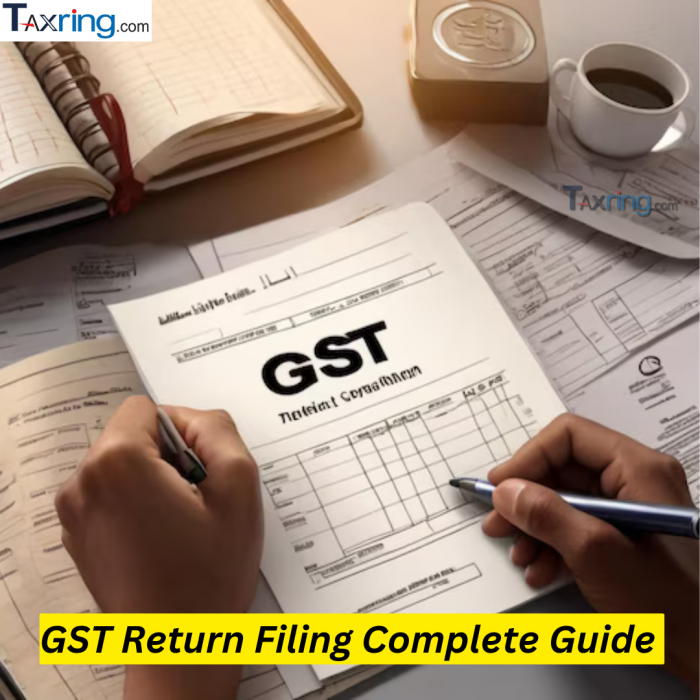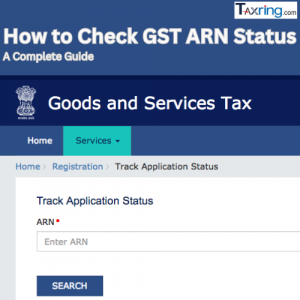
GST Return Filing: Complete Guide Due Date Who should file?
Introduction
One of the key features of the GST era is the consolidation of most indirect taxes, which previously required separate returns from various businesses. Now, whether you are a trader, manufacturer, reseller, or service provider, you must file GST returns online using prescribed formats.
Under GST, there are 19 return forms available for taxpayers to file their GST returns electronically. All these forms must be e-filed according to the procedures outlined in the GST return rules section of the GST Act. Below are the details of each GST return format, including their applicability and filing frequency.
What is GST Return Filing?
GST return filing is a mandatory compliance process for businesses that requires submitting detailed information about transactions and tax liabilities. This standardized method is essential for streamlining the Goods and Services Tax (GST) framework introduced in India in 2017.
Filing GST returns involves reporting key details such as purchases, sales, output GST collected on sales, and input tax credit (ITC) on purchases. Registered businesses must file GST returns monthly, quarterly, or annually, summarizing data from invoices, receipts, payments, and other relevant transactions. To avoid penalties, it's crucial to adhere to the specified due dates.
How to check online gst return filing status?
Here are updated steps for taxpayers to verify their GST return status on the GST portal:

Step 1: Visit the official GST website at www.gst.gov.in.
Step 2: Log in using your username and password.
Step 3: In the dashboard, navigate to the 'Services' section and select the 'Returns' option.
Step 4: Click on 'Track Return Status' from the dropdown menu.
Step 5: Enter the required details, such as the Financial Year and Return Type.
Step 6: Click on 'Search' to view the status of your GST return.
By following these steps, you can easily check the status of your GST return on the portal.
Benefits of Timely GST Return Submission
Timely GST return filing offers several advantages:
- Avoiding Penalties: All registered businesses must file their GST returns online, regardless of tax liability. Late filings incur penalties, with interest rates reaching up to 18% per annum and late fees ranging from ₹100 to ₹5,000.
- Maintaining Compliance Status: Filing returns on time helps avoid scrutiny from the GST department, thereby maintaining a positive compliance status. Inconsistencies can negatively impact business credibility.
- Claiming Input Tax Credit (ITC): Timely filings allow businesses to claim ITC, enabling them to deduct the tax paid on purchases from their total tax liability.
- Benefit from Government Initiatives: Businesses that file GST returns promptly are often eligible for government-backed schemes, which can include faster processing of refunds and exemptions from penalties.
- Improved Business Reputation: Consistent and timely filing showcases a business's commitment to compliance, enhancing its reputation among consumers, partners, and stakeholders.
Documents Required for GST Return Filings
To file GST returns, businesses need the following documents:
- Customer GSTIN
- GST invoices
- Place of supply details
- B2B and B2C service invoices
- Bill numbers
- Credit or debit notes
- HSN summary of goods sold
- Applicable IGST, CGST, and SGST amounts
- Relevant GST return forms
Eligibility Criteria for GST Return Filing
Certain entities are required to file GST returns, including:
- Regular businesses registered under the GST Act.
- Entities registered under the composition scheme.
- Input service distributors, and those deducting TDS and TCS.
- Businesses generating annual revenue over ₹1.5 crore.
- Non-resident Indians conducting business activities in India.
- E-commerce business owners and corporations.
- Individuals with a unique identification number (UIN).
Even if there is no business activity, filing a NIL GST Return is mandatory.
Checklist for GST Return Filing
Before filing your GST returns, ensure you have the following:
- Supply bill
- List of all tax invoices
- Information on pending ITC
- Details on credit notes or cancelled sales
- Information on returned goods
- Cross-verified purchase bills
Step-by-Step GST Return Filing Process
- Get in Touch With Our Experts: Book a consultation with our GST specialists to clarify any doubts. If not registered, ensure timely GST registration.
- Preparing and Updating Invoices: Provide the required documents and fill in essential details such as B2B and B2C invoices, along with ITC details to initiate the filing process.
- GST Return Calculation and Filing: Our team will calculate the GST returns and file them on your behalf through the online portal. You’ll receive an acknowledgment once the returns are filed.
GST Filing Process on GST Portal

who should file gst return?
Under the GST regime, regular businesses with an annual aggregate turnover exceeding ₹5 crore (and those not opting for the QRMP scheme) are required to file two monthly returns and one annual return, totaling 25 returns per year.
Taxpayers with a turnover of up to ₹5 crore can choose to file returns under the QRMP scheme, which involves 9 filings annually: 4 GSTR-1 returns, 4 GSTR-3B returns, and 1 annual return. It's important to note that QRMP filers must pay tax on a monthly basis, despite filing returns quarterly.
Additionally, specific cases, such as composition dealers, have different requirements. They need to file 5 returns each year: 4 statement-cum-challans using CMP-08 and 1 annual return (GSTR-4).
Types of GST Returns and Their Due Dates in 2024
| GST Form | Due Date |
|---|---|
| GSTR-1 | 10th of Every Month |
| GSTR-3B | 20th of Every Month |
| GSTR-9 | Annual, Due on 31 Dec |
| GSTR-9C | Annual, Due on 31 Dec |
| GSTR-10 | Within 3 months of GST cancellation |
| GSTR-11 | As Applicable for UIN Holders |
Penalties for Late GST Return Filing
Non-compliance can result in significant penalties, including:
- Interest at 18% per annum on overdue payments.
- Late fees of ₹100 per day (₹200 total per day, combining CGST and SGST), capped at ₹5,000.
Better GST Compliance Rating
The GST compliance rating reflects a business’s track record in timely submissions. Higher compliance ratings build trust with buyers, making it easier for vendors to secure input tax credits. This transparency encourages businesses to choose compliant partners.
How Taxring Helps in GST Return Filing
At Taxring, we simplify the GST return filing process by offering:
- Complete GST Compliance Support: Our experts ensure your filings are timely and accurate.
- End-to-End Support: From document preparation to filing, we handle it all, reducing your workload.
- Transparent Communication: Receive regular updates on your filing status to stay informed at every step.
Missing a deadline incurs penalties. File as soon as possible to mitigate charges.
Log in to the GST portal and navigate to the 'Returns Dashboard' to view your status.
While not mandatory, hiring a CA can help ensure accurate and timely submissions.
Filing periods vary; regular taxpayers usually file monthly, while composition scheme taxpayers file quarterly.
Yes, for regular taxpayers with turnover exceeding the threshold; composition scheme taxpayers file quarterly.
Log in to the GST portal, select the return form, and indicate zero transactions for the period.
Yes, but ensure compliance and accurate reporting to avoid penalties.
Errors must be rectified within the period of filing subsequent returns or within one year from the annual return's due date.
Read also: GST Registration comprehensive guide




